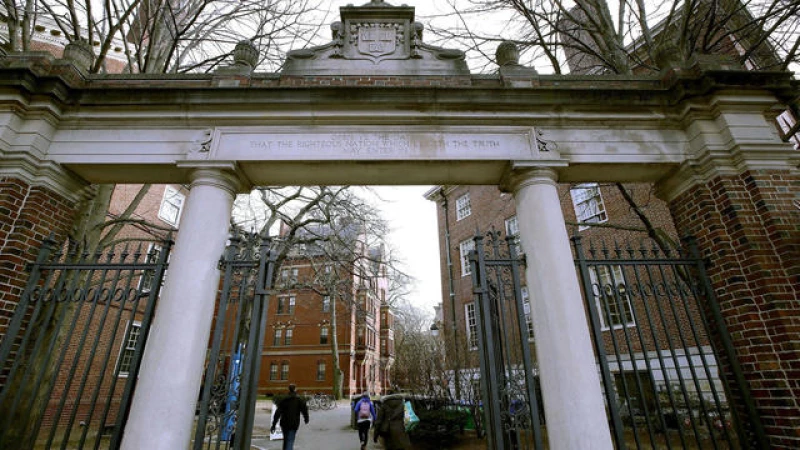Harvard University experienced a 5% decrease in undergraduate applications this year compared to the previous year. This decline follows a turbulent period for the Ivy League institution, marked by the resignation of President Claudine Gay and incidents of antisemitism on campus.
According to the Harvard Crimson, the university, located in Cambridge, Massachusetts, received 54,008 applications for the class of 2028. Out of these applicants, 1,245 were accepted, resulting in an acceptance rate of 3.59% for the incoming freshman class – the highest in four years.
While Harvard saw a decrease in applications, other Ivy League schools experienced an increase. Yale University's admission pool grew by 10%, and Columbia University reported a 5.4% rise in applications. Yale achieved its lowest-ever acceptance rate of 3.7% due to the larger applicant pool, while Columbia's admission rate decreased slightly from 3.9% to 3.85% compared to the previous year.
Harvard Faces Backlash and Decrease in Applications
Harvard has been under intense public scrutiny in the past year, receiving criticism from alumni and major donors for its handling of antisemitic incidents related to the Israel-Hamas conflict. Additionally, the decrease in applications coincides with Harvard's loss in a Supreme Court case regarding race-conscious admissions policies, leading to a shift in college admissions practices post the end of affirmative action in higher education.
Notably, the university did not disclose data on the racial and ethnic composition of its incoming class, a departure from previous years as reported by the Harvard Crimson.
Despite having its highest acceptance rate in four years, Harvard remains one of the most competitive universities in the U.S. Some affluent families are now investing up to $750,000 in consultants to groom their children for college admissions, banking on the possibility of securing a spot in a prestigious university.
Research indicates that graduates from top-tier colleges, including Ivy League institutions, are significantly more likely to have high incomes. A study by Harvard economists in 2023 revealed that individuals with a bachelor's degree from elite colleges are 60% more likely to belong to the top 1% income bracket compared to those who did not attend such institutions.







